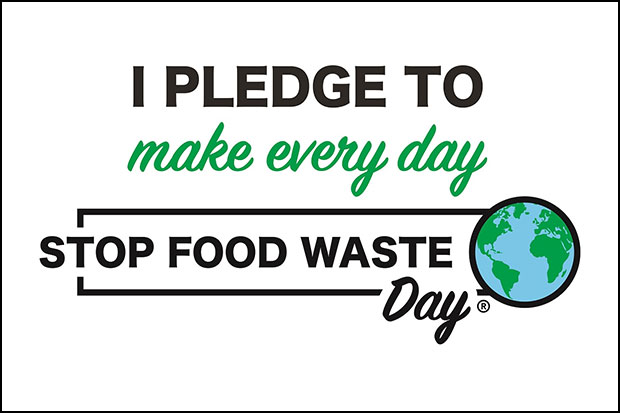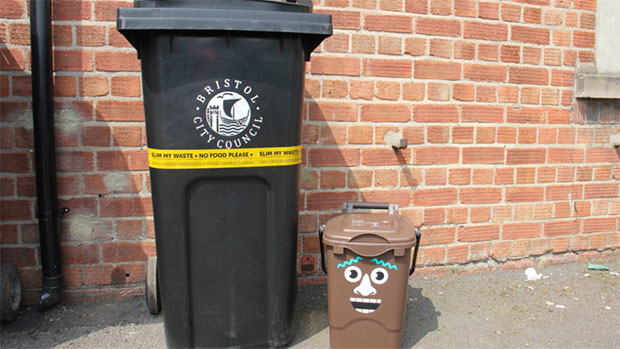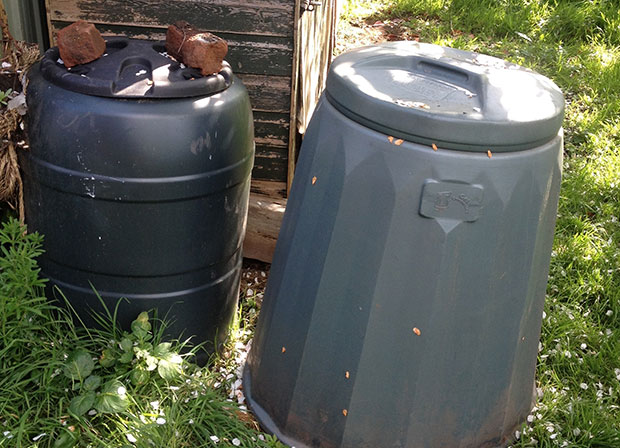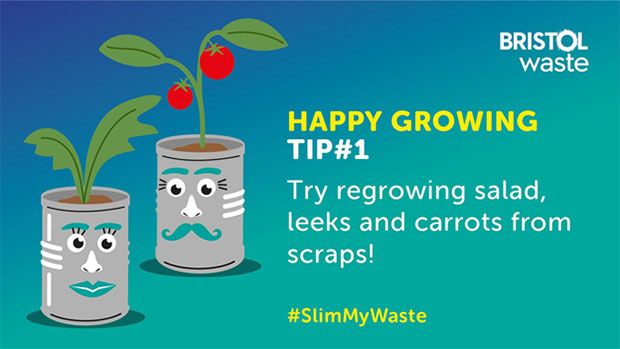
Did you know that according to ‘Stop Food Waste Day’ 33% of all food produced globally and 45% of root crops, fruit and vegetables are lost or wasted every year? Or that 8% of all greenhouse gas emissions each year are due to food loss and waste. How many of us ever stop to think about what we can do to help reduce this problem?
I'm passionate about food waste. It's always been a strong topic at home as well as at work; my partner is an Environmental Consultant who also spent a lot of time a few years ago volunteering for Bristol FoodCycle, a food waste charity.
I joined the Environment Agency in October 2016, transferring to Defra a year later. I’m currently between project teams on shared parental leave, but before that I was working in the Permissions Team as a designer for the Apply for an environmental permit service. My role in that team had me looking at the various waste management solutions. I talked to many industry professionals who used the permit service, as well as the Environment Agency staff that would process the waste permit applications. Seeing how much is involved in processing waste, and the environmental harm it can do if not managed correctly, I’ve become even further committed to reducing it.
‘Doing our bit’ around the home

The biggest challenge of all is domestic food waste, where 6.6 million tonnes of food is wasted annually. Getting the message out into the mainstream is an important part of tackling the food waste challenge, so it’s really encouraging to see Food Waste Action Week offering government funding to education within communities, as well as businesses.
At home we regularly keep track of any food we have, keeping an eye on expected expiry dates. Lots of items are still edible past their best before or sell by date, however, so keeping this in mind before throwing items out is also helpful.
When cooking we always use as much of each vegetable as possible. Anything that we can’t use either gets turned into compost at the allotment, or it gets collected by Bristol Waste in our weekly food waste collection, who take it to Anaerobic Digestion facilities, where it’s used to generate energy.
We’ve recently got a wormery for the garden, we’re hoping to start trialling that very soon. The worms are used to break down food that you add in; in so doing producing a liquid organic fertilizer that can be collected and used with rainwater for feeding plants.

Tackling the food waste challenge in the food industry
Getting prepared food quantities right in restaurants and cafes can be difficult when trade can often be so variable. Over a million tonnes of food is wasted in the hospitality sector each year. I have seen some great mobile apps facilitating the repurposing and delivering of food before it’s wasted though. 'Too good to go' and 'Olio' are a couple of examples used here in Bristol.
Stock management in food stores, as well as cafes and restaurants again, can also be a real challenge. Lots of food is wasted in the retail sector, although it’s inspiring to see that many places are now partnering with food waste charities like FoodCycle, donating surplus food to community centres for free meals prepared by volunteers.
Around the office
In my office I think I've possibly got a reputation for food waste and recycling! Non-food items making their way into the office kitchenette food waste bin is a big problem. Here in Bristol, like in many other areas of the UK, food waste goes to Anaerobic Digestion; it isn’t composted. Many types of non-food waste, even waste that claims to be compostable, actually contaminates the waste that’s destined for Anaerobic Digestion. We’ve also been working on clear signage and education for this in the office.
Another challenge is that our office premises are leased and have a separately run building-wide canteen on the ground floor - with no food waste bins. So there is still a way to go to achieve the desired behaviour change, especially when everyone is so busy.
Spreading the message – what can each of us do to help?

Education is the biggest tool we have to reduce food waste. Sharing information and fun ways to reduce food waste between friends is something we can all do. For example, here in Bristol, Bristol Waste (contracted by the city council) talk a lot about food waste in their campaign 'Slim my waste feed my face', and they share lots of interesting tips to help reduce food waste on their website and across social media. I loved a video they shared the other week about growing-on food waste scraps as cuttings to grow more from your vegetables. This is something I’ve done before with lettuce, but they showed how it can be done with many other vegetables like leeks and onions too. They have even won industry awards for their food waste reduction campaign.
Also, at home, when serving meals, we are always mindful that a large amount of food waste is from people’s plates, and so we only serve what we think we are likely to eat. After meals any of our food leftovers get covered in waxed wraps, and then put into the fridge to reuse for future meals or snacks. We can all do our bit just by following some of these simple tips.
Want to know more about how to reduce your food waste?
Do your bit by visiting the Stop Food Waste Day website, or sign up for Food Waste Action Week
3 comments
Comment by Frieda Davies posted on
Brilliant- especially when shopping is a undesirable activity! We have cleared out our freezer and cupboards during lockdown so we are feeling on top of not wasting anything! 🙂
Comment by Kay Finn posted on
Love this blog, well done Christina! It's a topic that's close to my heart too. I'm always a bit baffled about why people chuck stuff in the wrong bins.
Prior to lockdown I wouldn't have been brave enough to grow veg, but I'm giving tomatoes a go (we'll see!) There are tons of tips for composting garden waste and food waste out there too, so it's great to see more awareness sprouting (pardon the pun) from these unusual times.
Comment by David Howard posted on
Great blog, and it would be good to understand if DEFRA are engaging with schools (as example) to promote this, enhance education/understanding, and perhaps build 'hacks' with those groups around the subject. Perhaps random idea and may not be in the purview of DEFRA to lead that. I'm sure folks reading this blog have great complementary skills and may be willing to help on this topic similar to how Mattie Yeta is coordinating on IT supply chain sustainability.